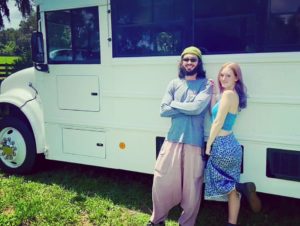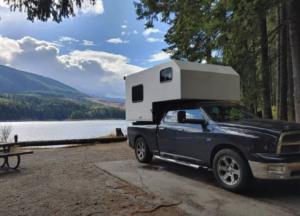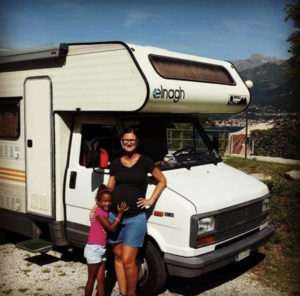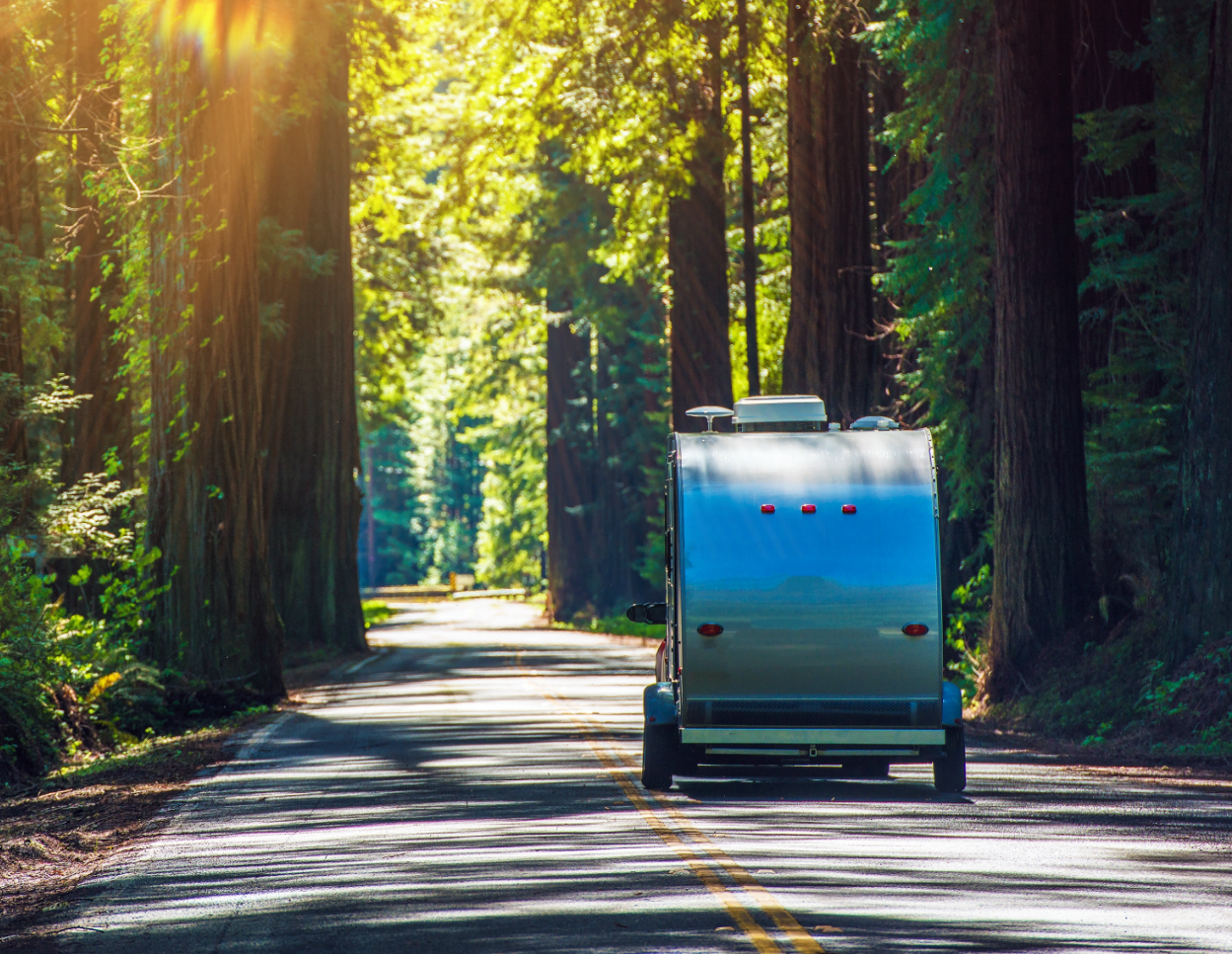 Andrew is a Shriner and a festival goer who’s on the hunt for an RV. At 34, he was convinced by his fellow Shriners that RV camping at their weekend events “makes the experiences much better.” He put two and two together and figured RVing would make festivals easier, too – no more breaking camp as a primitive tent camper when the fest is done.
Andrew is a Shriner and a festival goer who’s on the hunt for an RV. At 34, he was convinced by his fellow Shriners that RV camping at their weekend events “makes the experiences much better.” He put two and two together and figured RVing would make festivals easier, too – no more breaking camp as a primitive tent camper when the fest is done.
”That’s the worst part of a good festival,” he says. He’s just one snapshot of the changing face of today’s RV buyer…
 Emily and her boyfriend converted a “skoolie” they named Yeti, creating a small home exactly as they wanted. Emily is a college student, and when in-person semesters move to online, they just move wherever and whenever they want – and their home moves with them.
Emily and her boyfriend converted a “skoolie” they named Yeti, creating a small home exactly as they wanted. Emily is a college student, and when in-person semesters move to online, they just move wherever and whenever they want – and their home moves with them.
Ashley and her husband are millennials who would tent at festivals. Hoping for accommodations easier on their bodies, they tried truck-bed camping. That was fine for festivals. But what about roadtrips? They then built a truck camper – and unleashed their wanderlust.
Ashley’s husband has worked from home for a dozen years. Comfortable with “remote work,” they saw no point in waiting any longer.
 “We have gotten to the point that sleeping in tents surrounded by the 20 year olds at festies is hard on our bodies,” she says. “If we wait until we are ‘retirement age,’ half of the things we like to do currently will likely be difficult in 20 years.”
“We have gotten to the point that sleeping in tents surrounded by the 20 year olds at festies is hard on our bodies,” she says. “If we wait until we are ‘retirement age,’ half of the things we like to do currently will likely be difficult in 20 years.”
The face of the RVer is changing. One look around any music festival, state or national park, or especially the recent Tampa RV Super Show and Jacksonville RV Mega Show makes that pretty clear. They’re younger, more active and adventurous, and inclined to take longer vacations – even working vacations. There were kids and strollers and RVs with bunks designed for little explorers.
Whether at the annual shows that bring thousands of RVs and tens of thousands of patrons, or at campgrounds and festival fairgrounds around the country, these families, homeschoolers and digital nomads are sharing highways and campgrounds with Boomers who long have been the face of RVing.
Dave Kelly has seen the faces. The executive director of the Florida RV Trade Association, which puts on the shows, says the number of Gen X, millennial and younger buyers is rising. Many are looking for smaller rigs – small trailers, truck campers, and hybrid concepts – built for the road, and agile enough for quick overnight stays or deeper dives into remote areas.
“They want a basecamp,” he says, “someplace to sleep at the end of the day.”
The stats bear out the seismic, demographic shift. Who loves RV camping? “Well…everybody!” – with younger buyers leading this change, write the authors of the 2023 RV Industry Trends Report. The market once dominated by baby boomers today sees 38% of recent buyers as Millennials (born 1981-1996) and 31% Gen Xers (1965-1980). Boomers (1946-1964) were 22%. Most telling, the median age was 33.
These younger, diverse buyers could become “lifetime buyers,” authors wrote. They’re tech-savvy, environmentally conscious and ready to roll. Their travels will surpass figures from the pandemic. Some 48% of travelers plan to spend more time traveling within 300 miles of their homes, the report noted. They bought their RVs during the pandemic, “and now they want to get their money’s worth.”
They’re “digital nomads” who view RVs, and accessories like Wi-Fi extenders and workstation extensions, as “mobile offices that provide flexibility and freedom of a “roaming workplaces.” They’re also green, or so the industry hopes. Winnebago debuted its new “e-RV” for those hoping to ditch gas for electricity. Solar, Lithium batteries and other off-the-grid solutions are capturing the attention.
 Laura and Vincent, the Gen Xers who run “Traveling With Love” have been RVing full-time since 2016 – with a child that came along three years before then and their “RV baby” who arrived two years after. They lived in Italy in a Class C for five years, and now full time from a van and travel trailer.
Laura and Vincent, the Gen Xers who run “Traveling With Love” have been RVing full-time since 2016 – with a child that came along three years before then and their “RV baby” who arrived two years after. They lived in Italy in a Class C for five years, and now full time from a van and travel trailer.
They homeschool and “road school” their kids, convinced their lifestyle helps with problem solving, adapting to new situations and environments, and it’s a constant learning experience.”
As traditional travel suffers ongoing troubles – weather woes, pandemic fears, FAA computer glitches, lost luggage, even Congressional inquiries – to these folk, RVing looks better all the time.
“Home schooling is more of an experience. They can work from home, but home could be from Yellowstone or the Pacific Northwest or anywhere,” Kelly says. “When you can get the kids traveling the country, it beats anything they can read in a book.”
